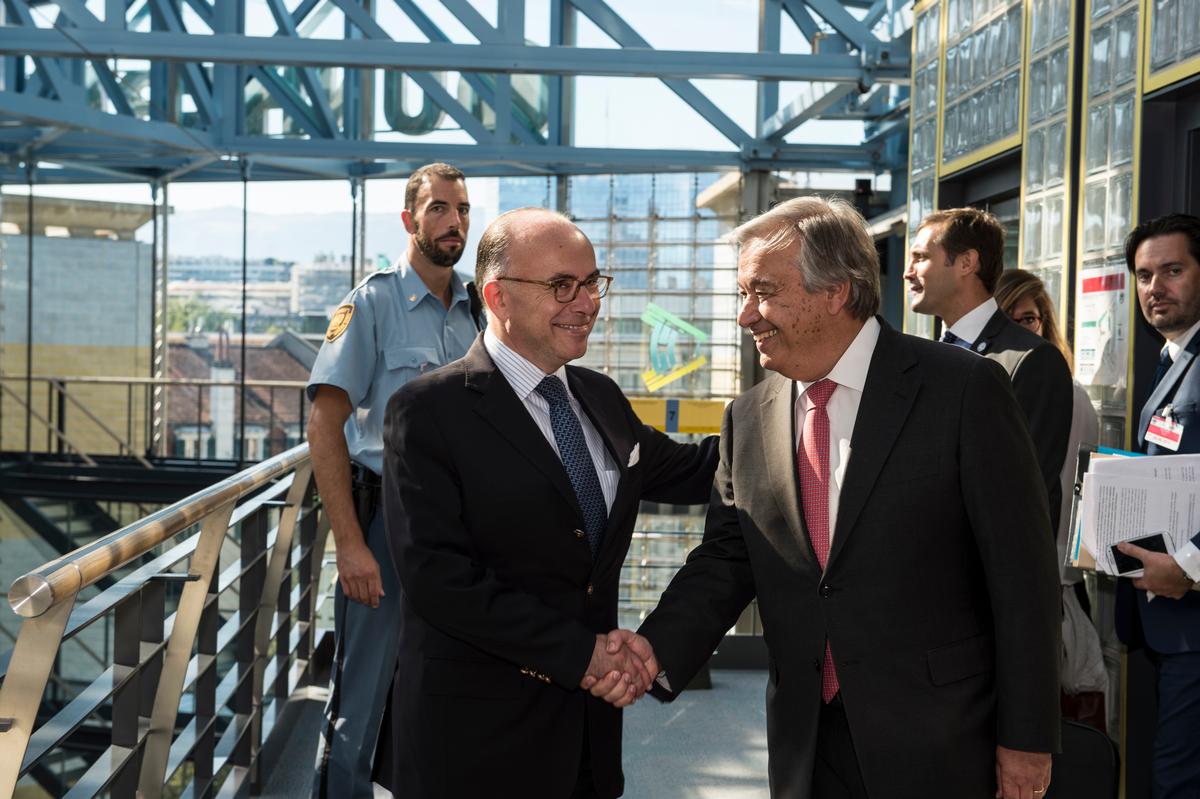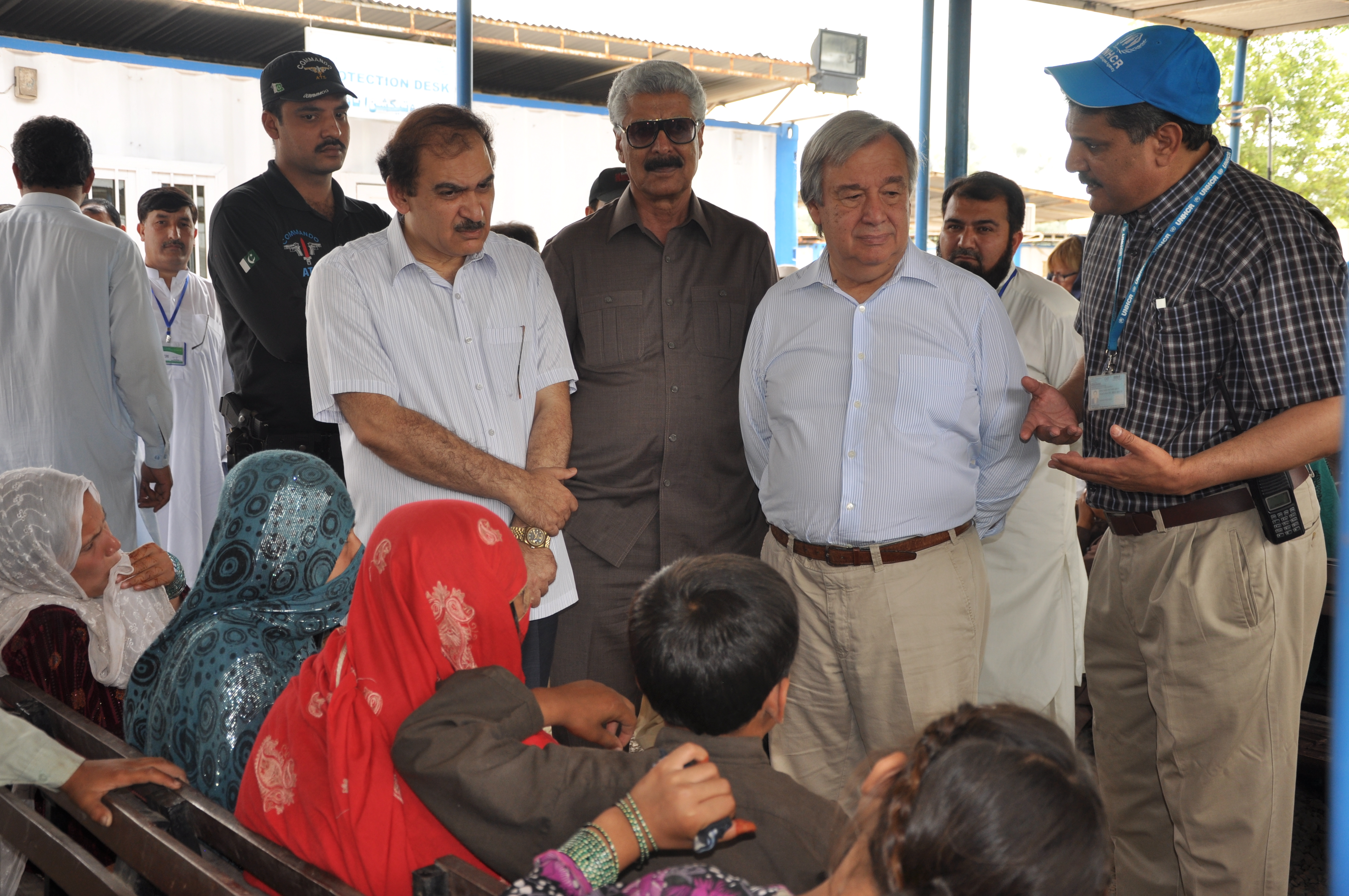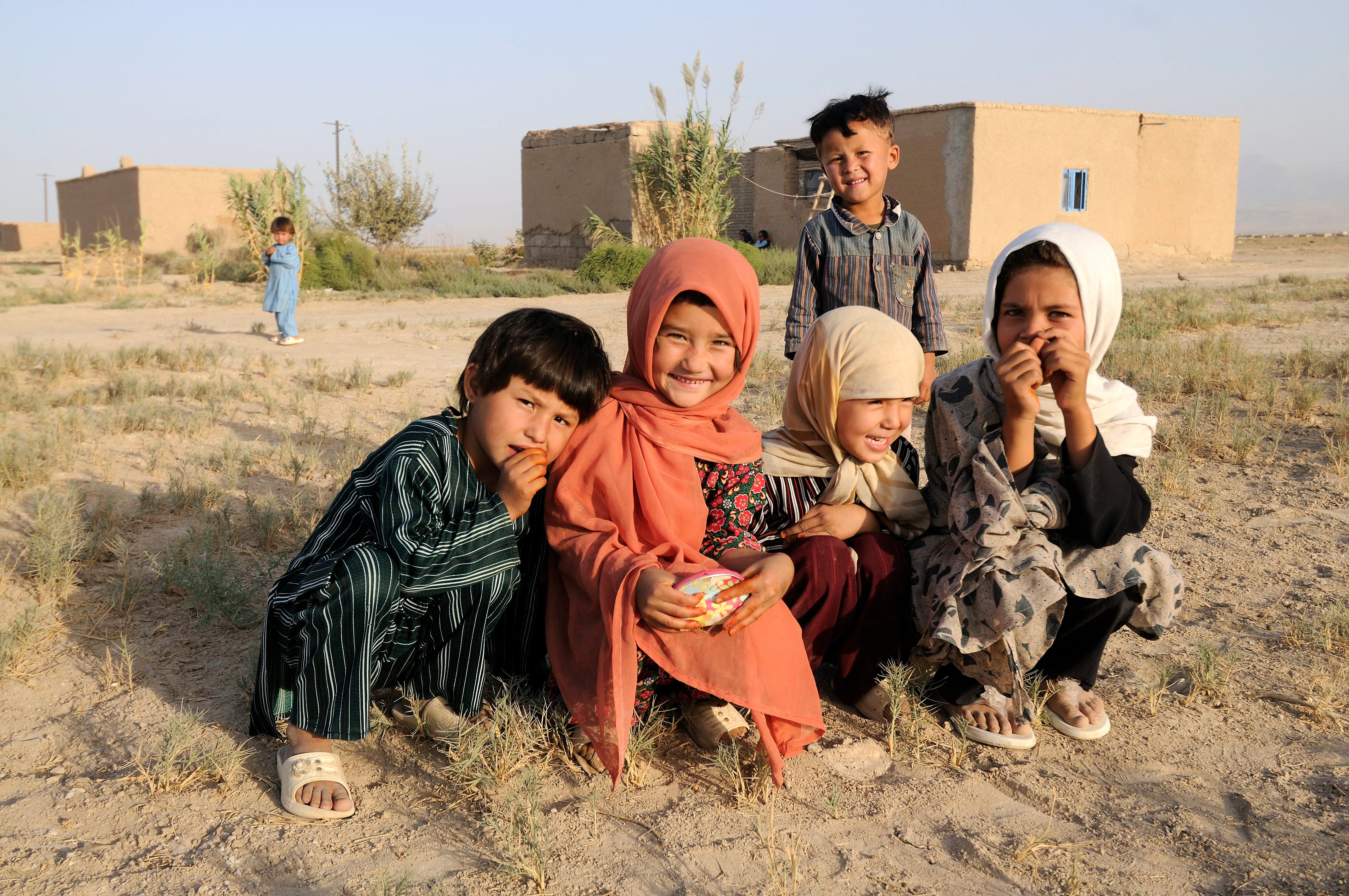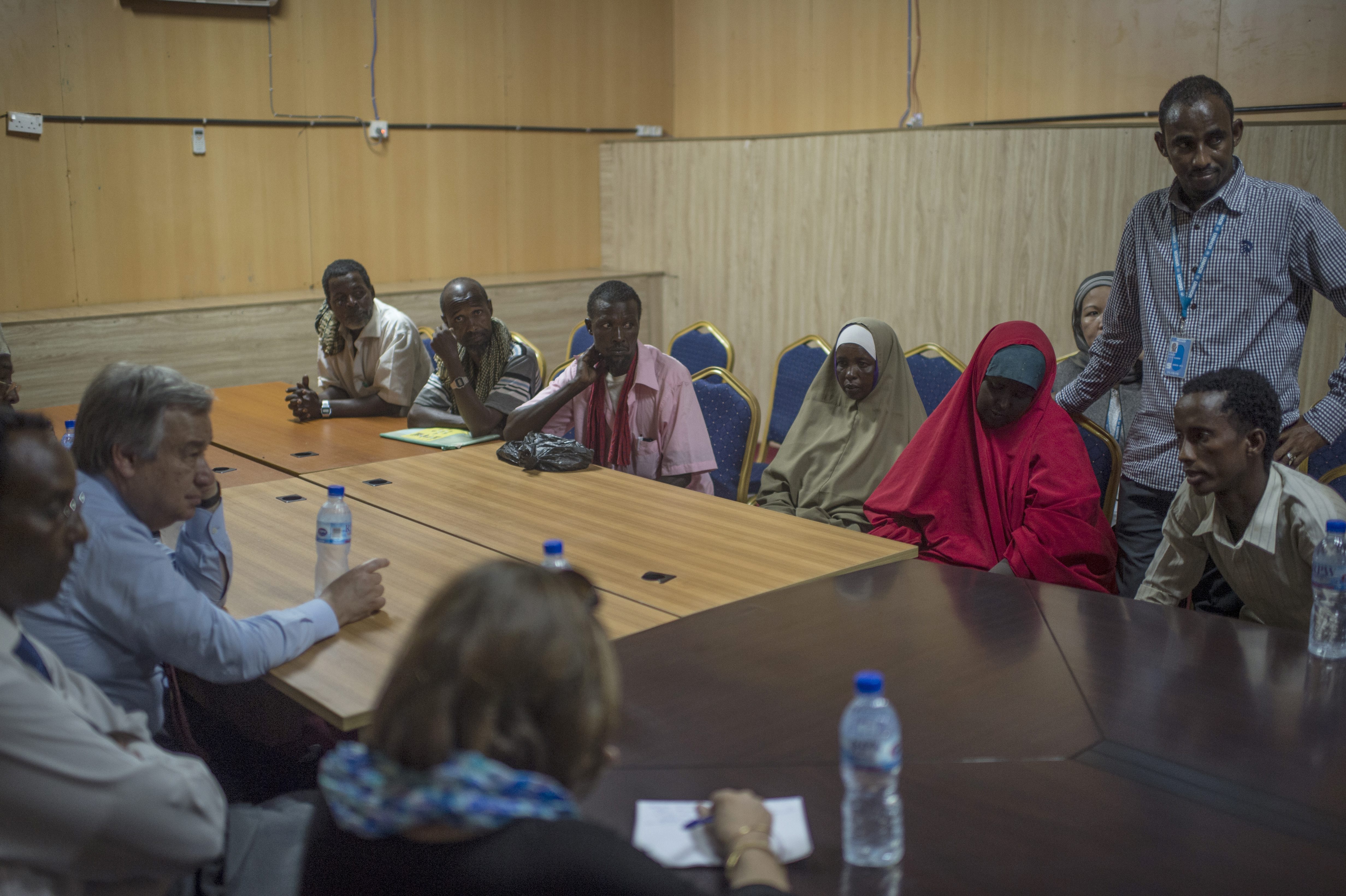UNHCR chief opens international meeting in Geneva on urban refugees
UNHCR chief opens international meeting in Geneva on urban refugees

GENEVA, December 9 (UNHCR) - UN High Commissioner for Refugees António Guterres on Wednesday opened a two-day international dialogue that will focus on the pressing problems faced by the increasing numbers of refugees and other forcibly displaced people living in cities and towns around the world.
Guterres, addressing more than 300 delegates in Geneva's Palais des Nations at the opening of his third annual Dialogue on Protection Challenges, said growing urbanization was "compounded by influxes of displaced people obliged to abandon their homes by the threat of armed conflict, political violence, lawlessness, food insecurity, environmental degradation and natural disasters. By all indications, this dimension of urbanization will intensify in the future.
"At the same time, evidence shows that high urbanization in states in conflict does not necessarily diminish when conflict ends. To rely exclusively on the traditional solution of repatriating refugees and returning internally displaced persons to their places of origin in rural areas is increasingly implausible."
The High Commissioner said this trend "presents a significant challenge, not only to UNHCR but the international community in general, which have tended until now to focus on camp-based refugees and internally displaced people."
He noted that more than half of the world's people now live in cities, while "there are an estimated 5 million refugees [out of 10.5 million] under UNHCR's mandate and many more millions of internally displaced people living in urban areas." Guterres said he hoped this year's Dialogue "will encourage policymakers to consider afresh the wisdom of encampment as a policy where and when other solutions may be better for the refugees and the host countries themselves."
Recognizing the growing importance of cities for its work, UNHCR last September issued a new policy on refugee protection and durable solutions in urban settings. The report drew much from the agency's experience helping Iraqi refugees in the Syrian and Jordanian capitals, Damascus and Amman.
"The new, more clearly rights-based policy emphasizes the fact that UNHCR's mandated responsibilities towards refugees are not affected by their location. It recognizes that cities and towns are legitimate places for refugees and displaced populations to reside and to enjoy their basic human rights," Guterres told the delegates, including mayors and other municipal authorities, aid workers, experts, refugees, and representatives from member states of UNHCR's governing body and countries with a special interest in this year's topic.
"The policy does not intend to disregard or subordinate national laws. Quite the opposite, the policy is built upon national legal structures, fully cognizant of the national legal and policy frameworks in which it has to be implemented. The policy aims both to encourage and contribute to the progressive development of these frameworks to ensure that refugees and others of concern in urban areas can be integrated into the social fabric of cities and towns in an appropriate, rights-respecting way," he added.
But Guterres stressed that the policy "is not an endorsement for all refugees to move to cities." He also noted that the policy, which will be implemented in a phased approach, "commits UNHCR to advocating for the expansion of 'protection space' in urban areas and affirms our commitment to designing urban programmes based on principles of age, gender and diversity mainstreaming."
The High Commissioner concluded that a new approach, based on three closely related principles, was needed to meet the challenge of urban displacement. "First, the new approach cannot be undertaken in isolation from the broader context of marginalized populations in urban settings. We must give particular attention to protecting the rights of poor and disadvantaged communities, empowering them to make full use of their proven resourcefulness," he said.
"Second, the approach must be both developmental and relief-based - one that addresses long-term as well as immediate needs and supports the broader process of urban planning and poverty reduction. Finally, the approach must be inclusive. It cannot done by UNHCR alone. It requires establishing and strengthening partnerships with central governments, municipal and local authorities, NGOs, the private sector and especially the marginalized populations themselves."
This year's informal Dialogue included a mix of plenary and key working group, or "breakout," sessions. Reports from the four working groups will be presented in a plenary session, which will be followed by an exchange of ideas. Guterres will present his own conclusions before the meeting ends on Thursday.
The Dialogue was preceded on Tuesday by a roundtable meeting at the Palais of mayors from more than 20 towns or cities. Geneva Mayor Remy Pagani, co-organizer of yesteday's gathering, said it was "an absolute success."
Nairobi's Mayor Geoffrey Majiwa, who is attending the Dialogue, said Tuesday's meeting "was quite productive because we reached a situation where all the mayors agreed that we need to become partners in raising issues to do with refugees in our cities and we need to work as a team to make sure that the refugees are protected."






